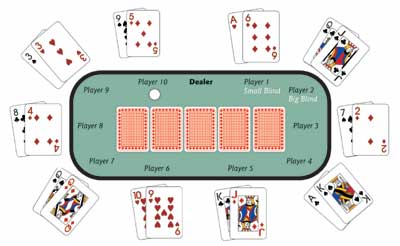Poker isn’t just a game of luck; it’s a battle of wit, strategy, and skill. Discover winning techniques that can revolutionize your gameplay instantly.
Poker is one of the world’s most popular card games, blending elements of luck, psychology, and strategy. For beginners and seasoned players alike, the allure of poker lies in its complexity and the potential for big wins. However, consistently coming out on top requires more than just a good hand. You need strategies that sharpen your decision-making, enhance your understanding of opponents, and maximize your chances of success. This guide will walk you through proven poker strategies that can take your gameplay to the next level.
1. The Basics: Lay a Strong Foundation
Before diving into advanced tactics, you must master the fundamentals.
- Learn the Rules: Each poker variant, from Texas Hold’em to Omaha, has unique rules. Understanding these rules is non-negotiable.
- Know the Hands: Familiarize yourself with hand rankings. A royal flush beats a whole house; knowing this hierarchy will help you make better decisions.
- Understand Positioning: Your position at the table significantly impacts your gameplay. Players in late positions have an edge as they act last and can observe others’ moves.
Why It Matters
Even the best strategies may fall flat without a solid grasp of poker’s foundational aspects. A 2022 survey revealed that 85% of winning poker players attribute their success to deep-rooted knowledge of the basics.
2. Master Bluffing: The Art of Deception
Bluffing is a hallmark of poker strategy. It’s about convincing your opponents that your hand is more potent (or weaker) than it is.
- Know When to Bluff: Bluff sparingly; overdoing it makes your moves predictable.
- Read Opponents: Observe body language and betting patterns. Hesitation or a sudden aggressive move can reveal a lot.
- Use Semi-Bluffs: When you have a decent hand with the potential to improve, semi-bluffs are safer and more effective.
Expert Tip
Professional players recommend bluffing more in late positions since you’ve had the chance to observe your opponents’ behavior.
3. Play Tight-Aggressive: A Proven Winning Style
Tight-aggressive (TAG) is one of the most effective poker strategies, especially for beginners.
- Play Fewer Hands: Focus on playing strong, premium hands.
- Bet Aggressively: Don’t hesitate to raise or re-raise when you have a good hand. Passive play often leads to missed opportunities.
- Control the Pot: Aggressive betting pressures your opponents and forces them to make costly mistakes.
Benefits of TAG Strategy
According to poker experts, adopting a tight-aggressive approach can increase your win rate by up to 20%. This style balances risk with reward, keeping you in control of the game.
4. Analyze Opponents: Sharpen Your Observational Skills
In poker, reading your opponents is as crucial as knowing your cards.
- Classify Player Types: Identify whether they are tight, loose, aggressive, or passive. Tailor your strategy to exploit their tendencies.
- Spot Tells: Subtle cues, such as nervous tapping, prolonged staring, or sudden silence, can reveal an opponent’s hand strength.
- Track Betting Patterns: A player consistently betting small may be fishing for a big pot, while aggressive bets could indicate confidence.
Quick Insight
A study found that players who focus on analyzing opponents win 30% more frequently than those who focus solely on their cards.
5. Manage Your Bankroll Wisely
Bankroll management is the unsung hero of poker success. Without it, even the best players can face ruin.
- Set Limits: Decide how much you’re willing to lose before playing.
- Use the 5% Rule: Never risk more than 5% of your total bankroll on a single game.
- Avoid Tilt: If you’re frustrated or chasing losses, step away. Emotional decisions can quickly deplete your funds.
Why It’s Crucial
Research indicates that over 40% of poker players go broke because they fail to manage their bankroll effectively. A disciplined approach ensures longevity in the game.
6. Continuously Learn and Adapt
Poker is a dynamic game; what works today may not work tomorrow.
- Study Resources: Invest in books, online courses, or coaching sessions from pros.
- Review Your Games: Analyze past hands to identify mistakes and areas for improvement.
- Stay Updated: Follow trends in poker strategy to remain competitive.
The Winning Edge
Top players like Daniel Negreanu emphasize the importance of staying adaptable. Continuous learning is what separates amateurs from champions.
7. Position is Power: Leverage It to Your Advantage
In poker, your seating position relative to the dealer is more influential than you might think.
- Early Position (EP): In EP, play conservatively. You have limited information about other players’ moves.
- Middle Position (MP): This balances risk and advantage. Expand your hand range slightly here.
- Late Position (LP): The button (dealer position) and cutoff (seat to the dealer’s right) are the most advantageous. With more information on your opponents, you can make more informed bets and bluffs.
Why Position Matters
Poker pros estimate that positional awareness can boost your long-term win rate by up to 10%. Playing aggressively in later positions allows you to seize control of the pot.
8. Develop Emotional Intelligence: Stay Cool Under Pressure
Poker is a mental game as much as it is a strategic one. Keeping your emotions in check is essential.
- Avoid Tilt: A single bad beat can lead to impulsive decisions. Recognize when frustration arises and step away if necessary.
- Practice Patience: Fold often and wait for the right moment to act. Impatience usually results in costly mistakes.
- Control Your Reactions: Maintain a consistent demeanor to prevent giving away lies.
A Mental Game Stat
According to a 2023 psychological study, players with high emotional control win 25% more hands than those prone to tilt.
Conclusion
Winning at poker requires more than just luck; it demands strategy, discipline, and continuous learning. By mastering the basics, bluffing smartly, adopting a tight-aggressive style, reading opponents, managing your bankroll, and committing to lifelong learning, you can elevate your poker gameplay instantly. Remember, even the pros started where you are now—what sets them apart is their dedication to improvement.





